Our Team
Core staff:
Maureen Fordham
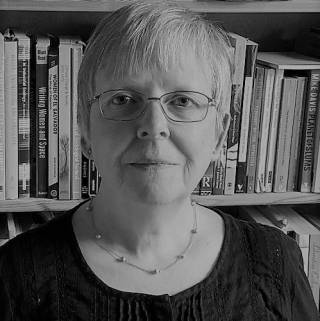
Punam Yadav
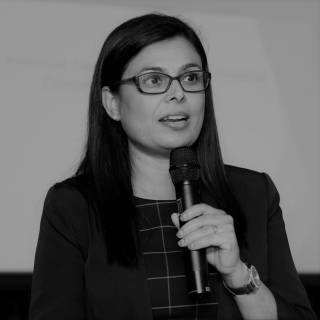
Nadia Jackson

Louisa Acciari
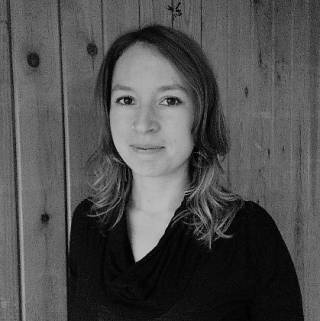
Olivia Walmsley
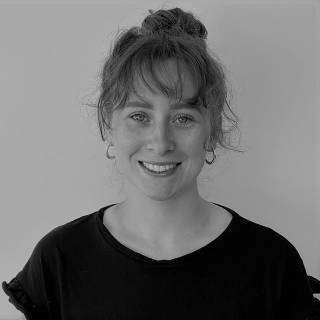
.
- Professor Maureen Fordham
Professorial Research Associate, Visiting Professor and Director of the IRDR Centre for Gender and Disaster
Maureen Fordham has been researching disasters since 1988 and is an expert on community-based disaster risk reduction and vulnerability analysis, focusing on the inclusion of a range of marginalised social groups in disaster risk reduction, especially women and girls. She was a founding member of the Gender and Disaster Network in 1997 and is the Coordinator of its website ( www.gdnonline.org) and activities. She has been a governmental advisor at all scales from local through national to the global UN level. She was closely involved in negotiations which led to the Sendai Framework for Disaster Risk Reduction 2015-2030. She launched the Centre for Gender and Disaster in March 2017.
Email: m.fordham@ucl.ac.uk
Full profile here
- Dr Punam Yadav
Lecturer in Humanitarian Studies, Co-Director of the Centre for Gender and Disaster
Punam Yadav's research interests include gender, peace and conflict studies, International development, gender and disaster; women, peace and security; conflict related sexual violence (CRSV); gender and transitional justice; conflict-induced internal displacement and refugee, women's reproductive health and rights; sex-selective abortion, and abortion rights. She is also a Co-Investigator of the UKRI Collective Fund award – GRRIPP (2019-2023), the current co-chair of the Feminist and Gender Studies Section (FTGS) of the International Studies Association (ISA) and the General Secretary of the Britain Nepal Academic Council (BNAC). Prior to joining the IRDR in 2018, she was a senior Research Fellow in the Centre for Women, Peace and Security and a Teaching Fellow in the Department of Gender Studies at LSE. She started her career as a development practitioner in Nepal and worked for over a decade with International and National NGOs. View Punam Yadav's full biography
Email: p.yadav@ucl.ac.uk
- Dr Louisa Acciari
Research Fellow, GRRIPP Global Network Coordinator & Co-Director of the Centre for Gender and Disaster
Louisa Acciari's research looks at gender in the world of labour through an intersectional and decolonial lens, and in particular, how marginalised and informal women workers organise to defend their rights. She collaborates with the domestic workers’ movement in Brazil and Latin America since 2014, and recently started researching the impact of the Covid-19 crisis on the sector. Before joining UCL in 2020, Louisa worked as a post-doctoral researcher at the Federal University of Rio de Janeiro for 2 years, and has extensive experience in conducting research, consultancy and training on gender and labour rights with the ILO, the International Domestic Workers’ Federation, Solidarity Centre and the OECD, among others. She has a Master in Comparative Politics – Latin America (Sciences Po Paris) and a PhD in Gender Studies (LSE).
Email: l.acciari@ucl.ac.uk
- Nadia Jackson
GRRIPP Finance and due diligence Manager, Co-Director of the Centre for Gender and Disaster
Nadia Jackson has over 13 years of experience in financial and research project management roles in the Higher Education sector in the UK. Her responsibilities in GRRIPP includes engaging with overseas stakeholders with large and complex budgets, providing financial projections and advising them on the efficient use of their financial resources according to the funder’s regulations and guidelines. Prior to the GRRIPP project, Nadia managed a portfolio of research and capacity building projects for UCL for NIHR School for Primary Care Research (a partnership between nine leading academic centres for primary care research in England).
Email: nadia.jackson@ucl.ac.uk
- Olivia Walmsley
GDN and GRRIPP Coordinator Assistant, Co-Director of the Centre for Gender and Disaster
Olivia Walmsley's interests lie in disaster and intersectionality, with a particular focus on gender and disability. She joined the Centre after completing her MSc in Risk, Disaster and Resilience at UCL and assists with the coordination and communication amongst GRRIPP projects and regions. Among her key responsabilities, Olivia manages the Gender and Disaster Reference Guide Series, and contributes to the coordination of the Gender and Disaster Network. Olivia has also worked as a Research Assistant with ODI where she co-authored a report for the SPARC -Supporting Pastoralism and Agriculture in Recurrent and Protracted Crisis, programme, focusing on young people's prospects for decent work in the drylands of east and west Africa.
Email: olivia.walmsley.19@ucl.ac.uk
Associates:
Sabah Boufkhed
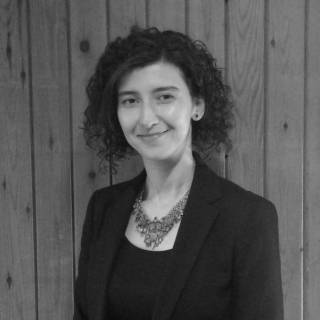
Sangita Limbu
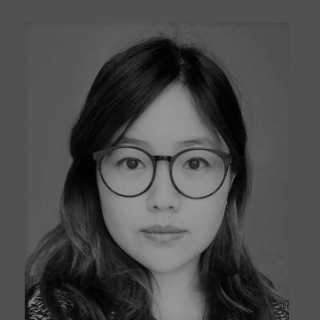
Monica Ribeiro
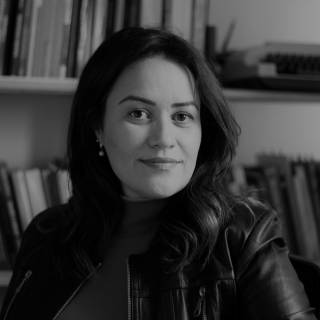
Kevin Blanchard

Zahra Khan
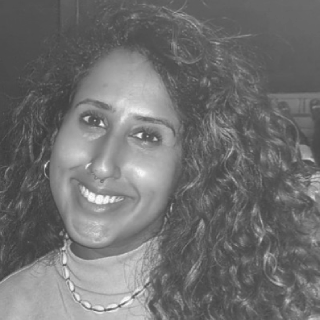
Celia Ramírez
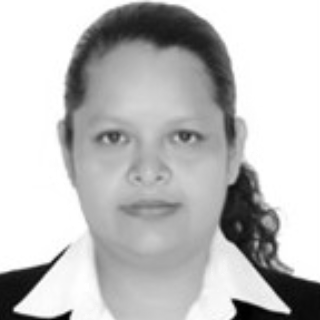
- Dr Sabah Boufkhed
Lecturer in Global Health, the University of Manchester
Sabah Boufkhed is an interdisciplinary global health researcher committed to social justice. Her research topics include preparedness and response to public health emergencies, labour exploitation and migrant workers’ health, and palliative care. She was a postdoctoral researcher at King’s College London in Global Health Palliative Care within the Research For Health In Conflict in the Middle East and North Africa (R4HC-MENA) project. She co-founded organisations aiming at empowering and supporting women and ‘minorities’ in science and academia, and is a Trustee for an NGO in Global Health and Development. Sabah earned an ESRC-funded PhD in Public Health from the London School of Hygiene & Tropical Medicine, and Master’s degrees in Public Health-Epidemiology and Humanitarian Action and Law.
- Sangita Thebe Limbu
PhD Student
Sangita Thebe Limbu's doctoral thesis aims to understand what constitutes indigenous knowledge; what role it plays in human-environment relations and climate change; how it is gendered and socially differentiated and how it is incorporated and negotiated in climate change adaptation policies and programmes. She explores these questions in the context of Nepal.
Prior to joining academia, Sangita worked in the international development sector in various capacities and has experience of researching in areas related to women’s political participation, post-war transition, youth unemployment, and gendered impacts of infrastructure development and urbanisation. She holds an MSc in Social Anthropology from the University of Oxford, and another MSc in Gender, Development and Globalisation from the London School of Economics and Political Science.
Email: sangita.limbu@ucl.ac.uk
- Mônica Ribeiro
Lawyer, Professor & researcher at Federal University of Rio de Janeiro /NESEG
Monica works at the interface between law and sociology and her research and knowledge exchange are focused on populations impacted by dam construction. She worked on the impacts caused in the city of Morada Nova de Minas, in the state of Minas Gerais, Brazil, before the construction of the Três Marias dam, for the construction of a water reservoir for the production of electricity for the country in the year 1960. Monica directed the documentary “Lá Na Morada”, composed of the narrative of the people affected, and also the book “Vozes Submersas: Políticas Públicas, Desenvolvimento e Resistência Lá na Morada”, contributing to reports, commissions and references of action in the demands of the third party sector and government to repair and mitigate impacts. These works became known on the international scene at conferences and lectures in Europe and South American countries. She currently works with women from Morada Nova de Minas, affected by a dam In the absence of public policies. These women were again affected by the rupture of the Brumadinho dam, a disaster that occurred in Minas Gerais, in 2019. I write about gender, disaster and law.
Documentary: Lá na Morada https://www.youtube.com/watch?v=nSTN6Ci645I (full movie) or https://www.youtube.com/watch?v=4TY2vzkIaCk (subtitled)
Recent publications:
Ribeiro, M.T.S. (2021) Vozes Submersas: Políticas Públicas, desenvolvimento e resistência lá na Morada . Belo Horizonte: Editora Dialética.
Ribeiro, M. T. S; Collares, I. Z.; Calazans, D.R.N de S. et al (2021): The construction of the Três Marias dam and the absence of public policies for the arrival of the waters in the municipality of Morada Nova de Minas in Brazil. Edward Elgar Publishing
Email: monicatsribeiro@gmail.com
- Kevin Blanchard
Kevin is an experienced policymaker, trainer and advocate who is focused on helping to ensure the inclusion, visibility and empowerment of marginalised and hyper-marginalised groups in disaster risk reduction (DRR). Kevin works internationally alongside grassroots organisations, educational institutions, national governments, UN organisations and charities to develop inclusive policy, training & practical guidance.
In his spare time, Kevin sits on the Editorial Board of the Journal of Disaster Studies, runs a number of disaster-related social media accounts (including @LGBTQIAinDRR) and hosts the #DRRLive series of seminars and webinars on inclusive DRR.
Email: contact@drrdynamics.com
- Zahra Khan
Zahra Khan has completed her PhD in Chemistry and has worked as a research and outreach assistant at the GRRIPP project alongside Maureen Fordham and Peter Sammonds to widen participation, bridging the gap between the social and physical sciences. She has organised events, facilitated workshops and engaged with other collaborators to motivate students to produce action plans to tackle worldly issues through a gender lens. She has contributed to international conferences pushing gender equality in policy and has worked on the LGBTQIA+ reference guide at the Centre. She has been involved in all the GRRIPP seminar weeks, hosting sessions to discuss issues regarding climate change, disaster management and gender equality. She also works as a science writer, pushing to amplify diverse voices and share scientific research from underrepresented countries to a global audience as well as communicating science in an accessible and relatable way. She is particularly interested in how science, particularly chemistry has a role in human rights and how a cross-disciplinary approach can be adopted to provide solutions to pressing issues, such as climate change.
- Celia Ramírez
Celia Ramírez Aguirre is a Sociologist of Communication and Education, with a Master's Degree in Management for Sustainable Development from the Autonomous University of Guerrero (UAGro).
She is studying for a PhD in urban planning at the Faculty of Urban and Regional Planning of the Autonomous University of Mexico (UAEMex), Toluca de Lerdo, Mexico, with thesis on "Comprehensive Disaster Risk Management in the face of landslides with an intersectional gender perspective in the Veladero National Park in Acapulco, Guerrero, Mexico".
She is president of the Integral Institute for the Social Management of Disaster Risk and Climate Change in Acapulco, Guerrero, Mexico.
She has carried out community work with women and girls on issues of risk management and adaptation to climate change, achieving management and liaison with the three levels of government, academia and international organizations.
Email: celiaramirez136@gmail.com
Publication of articles
- Master's postgraduate thesis: Intervention strategy to promote disaster risk management through capacity development and empowerment of women in Acapulco de Juárez, Guerrero CONACYT- UAGro. (2017-2019) http://ri.uagro.mx/handle/uagro/1039 Community Kitchen Program During COVID-19 Pandemic (July 2020) https://www.calameo.com/books/00279056095c0f8020682
- Local and gender-sensitive risk prevention: experience and lessons learned from Acapulco (REDER Magazine Vol. 5, No. 1 2021) http://www.revistareder.com/ojs/index.php/reder/article/view/59
- Informational Handbook: Recognizing Disaster Risk in Your Community (December 03, 2020) https://www.calameo.com/books/0066007365dccd359f71f
 Close
Close

